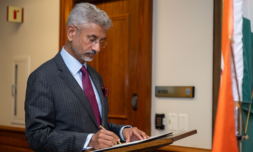With two new UAPA arrests of journalists, Indian reporters bear the worst burns of a government’s crusade to silence dissent.
In the early hours of Tuesday, October 3rd, Delhi Police raided the residences of more than 46 journalists associated with the news outlet NewsClick accusing them of siphoning funds.
Two among them, NewsClick editor Prabir Purkayastha and administrator Amit Chakravarty, were arrested under the draconian ‘Unlawful Activities (Prevention) Act’ (UAPA). This law is supposedly in-place to suppress acts of terrorism.
The news outlet was under investigation when a New York Times article alleged that it had spread Chinese propaganda and was being funded by American tech mogul Neville Roy Singham. Newsclick, known for publishing anti-establishment stories, denied the allegations.
In familiarly bolshie style, the Delhi Police seized all electronic devices including phones and laptops for ‘examination’ without offering a chance for retort.
The raiding and questioning were carried out in connection with FIR number 224/2023, registered in lieu of the case against the news outlet filed on August 17, 2023. It invokes sections of the UAPA and two sections of the Indian Penal Code.
This isn’t the first time that a government body has raided NewsClick. In 2021, the Enforcement Directorate (ED)’s raid began on the morning of February 9 continued for four days.
While this unfolded, both editor-in-chief Prabir Prakayastha, and his partner Githa Hariharan were confined to their home and rendered incommunicado for close to 100 hours.
News of this was followed by the Delhi Lieutenant Governor sanctioning the prosecution of renowned author and anti-establishment writer Arundhati Roy and former Central University of Kashmir professor Sheikh Showkat. The charges in question were related to a 13-year-old case for alleged provocative speech.




















